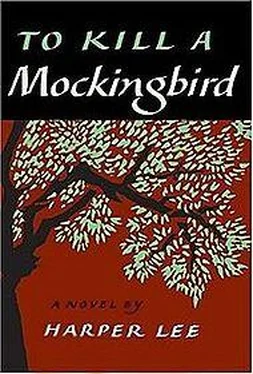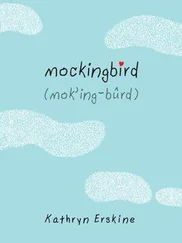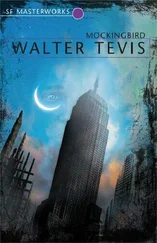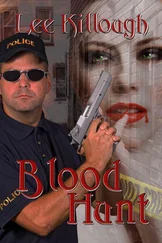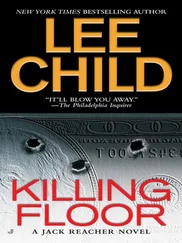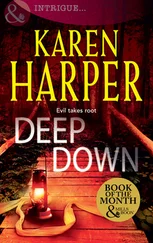Lee Harper - To Kill a Mockingbird
Здесь есть возможность читать онлайн «Lee Harper - To Kill a Mockingbird» весь текст электронной книги совершенно бесплатно (целиком полную версию без сокращений). В некоторых случаях можно слушать аудио, скачать через торрент в формате fb2 и присутствует краткое содержание. Жанр: Современная проза, на английском языке. Описание произведения, (предисловие) а так же отзывы посетителей доступны на портале библиотеки ЛибКат.
- Название:To Kill a Mockingbird
- Автор:
- Жанр:
- Год:неизвестен
- ISBN:нет данных
- Рейтинг книги:3 / 5. Голосов: 1
-
Избранное:Добавить в избранное
- Отзывы:
-
Ваша оценка:
- 60
- 1
- 2
- 3
- 4
- 5
To Kill a Mockingbird: краткое содержание, описание и аннотация
Предлагаем к чтению аннотацию, описание, краткое содержание или предисловие (зависит от того, что написал сам автор книги «To Kill a Mockingbird»). Если вы не нашли необходимую информацию о книге — напишите в комментариях, мы постараемся отыскать её.
To Kill a Mockingbird — читать онлайн бесплатно полную книгу (весь текст) целиком
Ниже представлен текст книги, разбитый по страницам. Система сохранения места последней прочитанной страницы, позволяет с удобством читать онлайн бесплатно книгу «To Kill a Mockingbird», без необходимости каждый раз заново искать на чём Вы остановились. Поставьте закладку, и сможете в любой момент перейти на страницу, на которой закончили чтение.
Интервал:
Закладка:
Mr. Tate said, “I was fetched by Bob — by Mr. Bob Ewell yonder, one night—”
“What night, sir?”
Mr. Tate said, “It was the night of November twenty-first. I was just leaving my office to go home when B — Mr. Ewell came in, very excited he was, and said get out to his house quick, some nigger’d raped his girl.”
“Did you go?”
“Certainly. Got in the car and went out as fast as I could.”
“And what did you find?”
“Found her lying on the floor in the middle of the front room, one on the right as you go in. She was pretty well beat up, but I heaved her to her feet and she washed her face in a bucket in the corner and said she was all right. I asked her who hurt her and she said it was Tom Robinson—”
Judge Taylor, who had been concentrating on his fingernails, looked up as if he were expecting an objection, but Atticus was quiet.
“—asked her if he beat her like that, she said yes he had. Asked her if he took advantage of her and she said yes he did. So I went down to Robinson’s house and brought him back. She identified him as the one, so I took him in. That’s all there was to it.”
“Thank you,” said Mr. Gilmer.
Judge Taylor said, “Any questions, Atticus?”
“Yes,” said my father. He was sitting behind his table; his chair was skewed to one side, his legs were crossed and one arm was resting on the back of his chair.
“Did you call a doctor, Sheriff? Did anybody call a doctor?” asked Atticus.
“No sir,” said Mr. Tate.
“Didn’t call a doctor?”
“No sir,” repeated Mr. Tate.
“Why not?” There was an edge to Atticus’s voice.
“Well I can tell you why I didn’t. It wasn’t necessary, Mr. Finch. She was mighty banged up. Something sho’ happened, it was obvious.”
“But you didn’t call a doctor? While you were there did anyone send for one, fetch one, carry her to one?”
“No sir—”
Judge Taylor broke in. “He’s answered the question three times, Atticus. He didn’t call a doctor.”
Atticus said, “I just wanted to make sure, Judge,” and the judge smiled.
Jem’s hand, which was resting on the balcony rail, tightened around it. He drew in his breath suddenly. Glancing below, I saw no corresponding reaction, and wondered if Jem was trying to be dramatic. Dill was watching peacefully, and so was Reverend Sykes beside him. “What is it?” I whispered, and got a terse, “Sh-h!”
“Sheriff,” Atticus was saying, “you say she was mighty banged up. In what way?”
“Well—”
“Just describe her injuries, Heck.”
“Well, she was beaten around the head. There was already bruises comin’ on her arms, and it happened about thirty minutes before—”
“How do you know?”
Mr. Tate grinned. “Sorry, that’s what they said. Anyway, she was pretty bruised up when I got there, and she had a black eye comin’.”
“Which eye?”
Mr. Tate blinked and ran his hands through his hair. “Let’s see,” he said softly, then he looked at Atticus as if he considered the question childish. “Can’t you remember?” Atticus asked.
Mr. Tate pointed to an invisible person five inches in front of him and said, “Her left.”
“Wait a minute, Sheriff,” said Atticus. “Was it her left facing you or her left looking the same way you were?”
Mr. Tate said, “Oh yes, that’d make it her right. It was her right eye, Mr. Finch. I remember now, she was bunged up on that side of her face....”
Mr. Tate blinked again, as if something had suddenly been made plain to him. Then he turned his head and looked around at Tom Robinson. As if by instinct, Tom Robinson raised his head.
Something had been made plain to Atticus also, and it brought him to his feet. “Sheriff, please repeat what you said.”
“It was her right eye, I said.”
“No...” Atticus walked to the court reporter’s desk and bent down to the furiously scribbling hand. It stopped, flipped back the shorthand pad, and the court reporter said, “’Mr. Finch. I remember now she was bunged up on that side of the face.’”
Atticus looked up at Mr. Tate. “Which side again, Heck?”
“The right side, Mr. Finch, but she had more bruises — you wanta hear about ‘em?”
Atticus seemed to be bordering on another question, but he thought better of it and said, “Yes, what were her other injuries?” As Mr. Tate answered, Atticus turned and looked at Tom Robinson as if to say this was something they hadn’t bargained for.
“...her arms were bruised, and she showed me her neck. There were definite finger marks on her gullet—”
“All around her throat? At the back of her neck?”
“I’d say they were all around, Mr. Finch.”
“You would?”
“Yes sir, she had a small throat, anybody could’a reached around it with—”
“Just answer the question yes or no, please, Sheriff,” said Atticus dryly, and Mr. Tate fell silent.
Atticus sat down and nodded to the circuit solicitor, who shook his head at the judge, who nodded to Mr. Tate, who rose stiffly and stepped down from the witness stand.
Below us, heads turned, feet scraped the floor, babies were shifted to shoulders, and a few children scampered out of the courtroom. The Negroes behind us whispered softly among themselves; Dill was asking Reverend Sykes what it was all about, but Reverend Sykes said he didn’t know. So far, things were utterly dull: nobody had thundered, there were no arguments between opposing counsel, there was no drama; a grave disappointment to all present, it seemed. Atticus was proceeding amiably, as if he were involved in a title dispute. With his infinite capacity for calming turbulent seas, he could make a rape case as dry as a sermon. Gone was the terror in my mind of stale whiskey and barnyard smells, of sleepy-eyed sullen men, of a husky voice calling in the night, “Mr. Finch? They gone?” Our nightmare had gone with daylight, everything would come out all right.
All the spectators were as relaxed as Judge Taylor, except Jem. His mouth was twisted into a purposeful half-grin, and his eyes happy about, and he said something about corroborating evidence, which made me sure he was showing off.
“...Robert E. Lee Ewell!”
In answer to the clerk’s booming voice, a little bantam cock of a man rose and strutted to the stand, the back of his neck reddening at the sound of his name. When he turned around to take the oath, we saw that his face was as red as his neck. We also saw no resemblance to his namesake. A shock of wispy new-washed hair stood up from his forehead; his nose was thin, pointed, and shiny; he had no chin to speak of — it seemed to be part of his crepey neck.
“—so help me God,” he crowed.
Every town the size of Maycomb had families like the Ewells. No economic fluctuations changed their status — people like the Ewells lived as guests of the county in prosperity as well as in the depths of a depression. No truant officers could keep their numerous offspring in school; no public health officer could free them from congenital defects, various worms, and the diseases indigenous to filthy surroundings.
Maycomb’s Ewells lived behind the town garbage dump in what was once a Negro cabin. The cabin’s plank walls were supplemented with sheets of corrugated iron, its roof shingled with tin cans hammered flat, so only its general shape suggested its original design: square, with four tiny rooms opening onto a shotgun hall, the cabin rested uneasily upon four irregular lumps of limestone. Its windows were merely open spaces in the walls, which in the summertime were covered with greasy strips of cheesecloth to keep out the varmints that feasted on Maycomb’s refuse.
The varmints had a lean time of it, for the Ewells gave the dump a thorough gleaning every day, and the fruits of their industry (those that were not eaten) made the plot of ground around the cabin look like the playhouse of an insane child: what passed for a fence was bits of tree-limbs, broomsticks and tool shafts, all tipped with rusty hammer-heads, snaggle-toothed rake heads, shovels, axes and grubbing hoes, held on with pieces of barbed wire. Enclosed by this barricade was a dirty yard containing the remains of a Model-T Ford (on blocks), a discarded dentist’s chair, an ancient icebox, plus lesser items: old shoes, worn-out table radios, picture frames, and fruit jars, under which scrawny orange chickens pecked hopefully.
Читать дальшеИнтервал:
Закладка:
Похожие книги на «To Kill a Mockingbird»
Представляем Вашему вниманию похожие книги на «To Kill a Mockingbird» списком для выбора. Мы отобрали схожую по названию и смыслу литературу в надежде предоставить читателям больше вариантов отыскать новые, интересные, ещё непрочитанные произведения.
Обсуждение, отзывы о книге «To Kill a Mockingbird» и просто собственные мнения читателей. Оставьте ваши комментарии, напишите, что Вы думаете о произведении, его смысле или главных героях. Укажите что конкретно понравилось, а что нет, и почему Вы так считаете.
